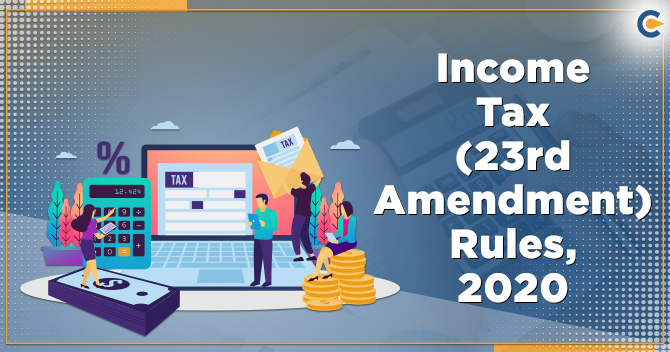Cryptocurrencies have gained significant popularity and recognition globally, including in India. As the adoption of Cryptocurrencies increases, it is crucial to understand their tax implications. The Indian government and regulatory bodies have taken steps to address the taxation of Cryptocurrencies, aiming to bring clarity and ensure compliance within the existing legal framework. In this blog post, we will explore the taxation of Cryptocurrencies in India and shed light on the key considerations for individuals and businesses.
What is Cryptocurrency?
Cryptocurrency is a digital or virtual currency that utilizes cryptography for security and operates on decentralized networks known as blockchains. Unlike traditional fiat currencies issued by central banks, Cryptocurrencies are not physical coins or banknotes. Instead, they exist solely in digital form.
Overview of Cryptocurrencies in India
Cryptocurrencies have gained significant attention and adoption worldwide, including in India. While the Indian government and regulatory bodies have shown caution and concern regarding Cryptocurrencies, they have acknowledged their potential benefits and are exploring ways to regulate the space. Here’s an overview of the Cryptocurrency landscape in India:
Legal Status:
Cryptocurrencies arn’t considered legal tender in India. The Reserve Bank of India (RBI)[1], issued a circular in 2018 prohibiting regulated entities from dealing with Cryptocurrencies. However, the circular was challenged by the Supreme Court, which eventually lifted the ban in 2020. Since then, Cryptocurrencies have operated in a legal grey area, with discussions ongoing to establish a clear regulatory framework.
Regulatory Developments:
Indian regulatory bodies, including the RBI and the Securities and Exchange Board of India (SEBI), have actively explored ways to regulate Cryptocurrencies. The government has introduced the Crypto Currency and Regulation of Official Digital Currency Bill, 2021, which focuses to create a regulatory framework for digital currencies while prohibiting private Cryptocurrencies. However, the bill is yet to be passed by the Parliament, and its exact provisions and implications are still under consideration.
Crypto Exchanges and Trading:
India has witnessed the emergence of several Cryptocurrency exchanges that allow users to buy, sell, and trade various Cryptocurrencies. These exchanges act as intermediaries, providing a platform for users to engage in Cryptocurrency transactions. However, given the uncertain regulatory environment, exchanges have faced challenges maintaining banking relationships, leading to occasional disruptions in fiat currency deposits and withdrawals.
User Adoption and Awareness:
Cryptocurrency adoption in India has seen significant growth in recent years. More individuals are investing in Cryptocurrencies as an alternative asset class, driven by the potential for high returns and diversification. Increased awareness and education initiatives have played a role in popularizing Cryptocurrencies, though the general public still needs further awareness and understanding.
Blockchain Technology:
Apart from Cryptocurrencies, India has recognized the potential of blockchain technology and its applications across various sectors. Several government bodies and enterprises are exploring blockchain solutions for supply chain management, healthcare, finance, and more. The government has also initiated blockchain-focused projects and hackathons to foster innovation.
Government’s Stance on Cryptocurrencies:
While there have been concerns about Crypto currencies’ potential misuse for illicit activities and money laundering, the Indian government has also shown interest in exploring the benefits of digital currencies. The RBI has been researching the possibility of a central bank digital currency (CBDC) and is expected to launch a pilot project soon.
Is crypto a currency or an asset?
Cryptocurrencies can be considered both a currency and an asset, depending on their context and use.
- Currency:Cryptocurrencies were created with the intention of being used as a medium of exchange, similar to traditional fiat currencies like the US Dollar or Euro. They can be used to purchase goods and services from merchants or individuals who accept Cryptocurrencies as payment. Some Cryptocurrencies, like Bitcoin, were specifically designed to function as digital currencies.
- Asset:Cryptocurrencies can also be treated as assets or investment instruments. Many people buy and hold Cryptocurrencies with the expectation that their value will increase over time, allowing them to make a profit when they sell. Cryptocurrencies, in this sense, are similar to other investment assets like stocks, bonds, or real estate.
The distinction between Cryptocurrencies as currencies or assets can also vary from a legal and regulatory perspective. Different jurisdictions may classify Crypto currencies differently based on their specific regulations and definitions. For example, in some countries, Cryptocurrencies may be treated as legal tender or recognized as a form of payment, while in others, they may be considered as property or commodities.
Furthermore, the usage and perception of Cryptocurrencies can vary among individuals and businesses. Some may primarily view them as a decentralized currency and use them for day-to-day transactions. In contrast, others may treat them primarily as an investment vehicle, buying and holding them for potential returns.
Cryptocurrencies as currencies or assets can affect taxation, regulatory oversight, and legal treatment. The specific classification can vary across jurisdictions, and individuals should consult the laws and regulations of their respective countries to determine how Cryptocurrencies are treated.
Taxation of Cryptocurrencies in India
Taxation of Cryptocurrencies in India has been a topic of interest and discussion among individuals and businesses involved in Cryptocurrency transactions. The Indian government and regulatory bodies have taken steps to address the taxation aspects of Cryptocurrencies, aiming to bring clarity and ensure compliance within the existing legal framework. Here is an overview of the taxation rules and considerations related to Cryptocurrencies in India:
Classification of Cryptocurrency Transactions:
The tax treatment of Cryptocurrencies in India depends on the nature and purpose of the transaction. The two primary categories are Cryptocurrency trading and Cryptocurrency investments.
- Cryptocurrency Trading:
Suppose an individual or business engages in Cryptocurrency trading, buying and selling Cryptocurrencies frequently for short-term gains. In that case, the profits or gains derived from such activities are taxable. These gains fall under “Income from Business or Profession.” Proper books of accounts need to be maintained, and taxes are paid based on the applicable income tax slab rates.
- Cryptocurrency Investments:
Investing in Cryptocurrencies for the long term is considered a capital asset investment. The tax treatment for Cryptocurrency investments is similar to that of other capital assets, such as stocks or real estate. If the Cryptocurrency is held for more than 36 months, any gains derived from its sale are treated as long-term capital gains (LTCG) and taxed at a flat rate of 20% after applying for indexation benefits. If the Cryptocurrency is held for 36 months or less, the gains are classified as short-term capital gains (STCG) and taxed at the applicable slab rates based on the individual’s income.
Mining and Staking of Cryptocurrencies:
Cryptocurrency mining, which involves validating transactions and adding them to the blockchain network, is also subject to taxation in India. The value of the mined or staked Cryptocurrency received as income needs to be considered for taxation purposes. This value is taxable at the applicable income tax slab rates, and individuals or businesses engaged in mining activities must report it as income.
- Goods and Services Tax (GST):
The applicability of Goods and Services Tax (GST) to Cryptocurrencies in India is still evolving. The sale or purchase of Cryptocurrencies in exchange for fiat currency, such as the Indian Rupee (INR), is considered a taxable supply of services and attracts GST at the applicable rates. However, specific guidelines and clarifications from the government regarding the exact GST treatment of Cryptocurrencies are awaited.
- Compliance and Reporting:
Individuals and businesses involved in Cryptocurrency transactions must comply with the tax regulations and reporting requirements. It is essential to maintain accurate records of Cryptocurrency transactions, including details of purchases, sales, trading, mining, and staking. These records should be retained to support tax calculations, especially in case of an audit or scrutiny by tax authorities.
How is Taxation Essential in Crypto?
Taxation is essential in the realm of Cryptocurrencies for several reasons:
- Revenue Generation: Taxation allows governments to generate revenue to fund public services, infrastructure, and social welfare programs. Cryptocurrencies have gained significant value and have become a source of income for many individuals and businesses. Taxation ensures that these gains are appropriately captured and contribute to the overall tax revenue.
- Equity and Fairness: Taxation promotes fairness by ensuring that individuals and businesses contribute their fair share to a society based on income and wealth. Like any other form of income or investment, cryptocurrencies should be subject to taxation to maintain an equitable tax system.
- Compliance and Regulation: Taxation helps bring Cryptocurrencies within the purview of regulatory frameworks. By establishing tax regulations, governments can introduce oversight and control over Cryptocurrency transactions, promoting transparency and preventing potential misuse, tax evasion, money laundering, or other illicit activities.
- Integration with Traditional Economy: Taxation facilitates the integration of Cryptocurrencies with the traditional economy. When Cryptocurrencies are taxed, they are treated on par with other assets and income sources, fostering a level playing field for all economic activities. This integration also helps establish the legitimacy and acceptance of Cryptocurrencies within the existing financial system.
- Investor Protection: Taxation frameworks protect investors by requiring individuals and businesses to report their Cryptocurrency holdings and transactions. This ensures that investors know their tax obligations and encourages responsible investing practices.
- Clarity and Compliance: Taxation guidelines and reporting requirements bring clarity to individuals and businesses engaged in Cryptocurrency transactions. Clear regulations reduce confusion, help taxpayers understand their obligations, and promote compliance. This clarity is essential for taxpayers to avoid penalties and legal consequences associated with non-compliance.
- Future Legalization and Mainstream Adoption: Establishing taxation frameworks for Cryptocurrencies is a step towards future legalization and mainstream adoption. Governments regulating and tax Cryptocurrencies signifies their recognition of this digital asset class and their intent to create a supportive environment for its growth and development.
Individuals and businesses involved in Cryptocurrency transactions need to consult with tax professionals or experts who can provide guidance tailored to their specific circumstances. Staying informed about tax regulations and fulfilling tax obligations is crucial to ensure compliance and mitigate potential risks associated with Cryptocurrency taxation.
Calculating tax in crypto
Calculating taxes on Cryptocurrency transactions involves determining the taxable income or gains and applying the appropriate tax rates. Here’s a general overview of the steps involved in calculating taxes on crypto:
- Identify the Type of Transaction: Determine the nature of the Cryptocurrency transaction, whether it is trading, investment, mining, or any other activity. Different types of transactions may have varying tax implications.
- Determine the Holding Period: If the transaction involves the sale of Cryptocurrencies, calculate the holding period. It is considered a short-term capital asset if held for 36 months or less.
- Calculate Capital Gains or Profits:
- For Trading: If the transaction is considered trading, calculate the profits or gains by deducting the cost of acquisition (purchase price) from the selling price of the Cryptocurrency. This will yield capital gains or profits from trading activities.
- For Investments: If the transaction is considered an investment, calculate the gains or profits by deducting the acquisition cost from the selling price. This will determine the capital gains from the investment.
- Determine the Tax Rate: For capital gains, different tax rates apply based on the holding period:
- Long-term Capital Gains (LTCG): If the holding period is more than 36 months, the LTCG is subject to a flat tax rate of 20% after applying for indexation benefits.
- Short-term Capital Gains (STCG): If the holding period is 36 months or less, the STCG is taxed at the applicable slab rates based on the individual’s income.
- Compute the Tax Liability: Multiply the capital gains or profits by the applicable tax rate to calculate the tax liability. This will give you the amount of tax owed on the Cryptocurrency transaction.
It’s important to note that the above steps provide a general framework for calculating taxes on Cryptocurrency transactions. However, tax laws and regulations can vary across jurisdictions, and specific rules may apply.
Conclusion:
The taxation of Cryptocurrencies in India is determined based on the nature of the transaction, whether it involves trading or investment activities. Cryptocurrency trading attracts income tax, while Cryptocurrency investments are subject to capital gains tax. Mining and staking of Cryptocurrencies are also considered taxable activities. Additionally, the applicability of GST to Cryptocurrencies is still evolving, and further guidelines from the government are awaited. Individuals and businesses involved in Cryptocurrency transactions must stay updated with the latest tax regulations, maintain proper records, and comply with reporting requirements to ensure smooth tax compliance and mitigate any potential risks or penalties. Consulting with tax professionals or experts can provide personalized guidance based on individual circumstances.
Read our Article:An Overview On Tax Residency Certificate & Double Taxation Avoidance Agreement: How To Get It?











